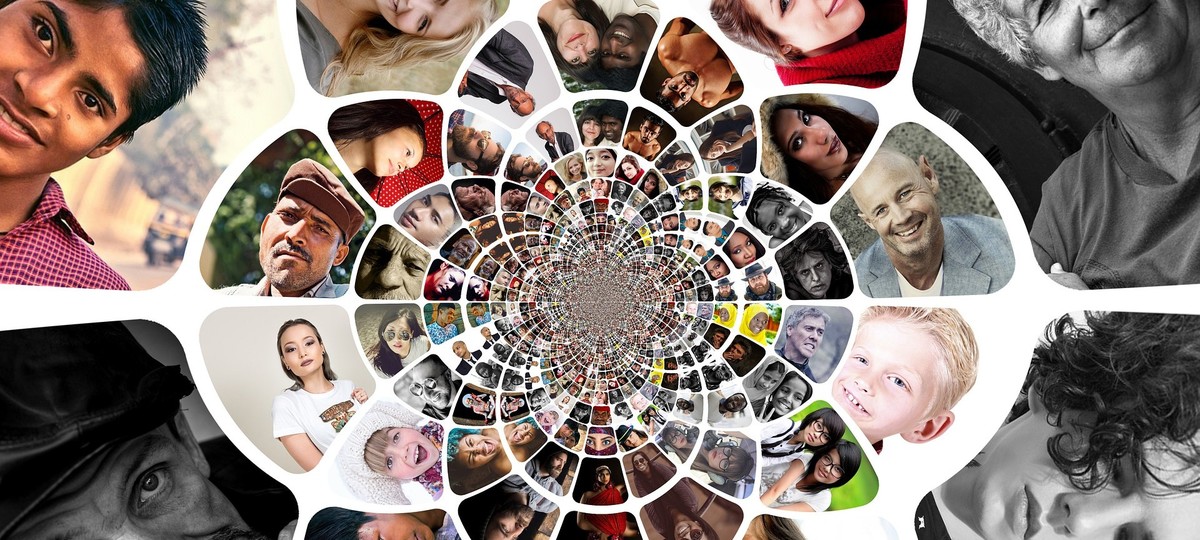
First, the word "racist" has become so overused and contorted that it no longer has any meaning. The term used to refer to someone who believed that his or her race was superior to others, and who behaved accordingly. But as the number of actual racists dwindled in the past few decades, those whose careers depend upon the existence of racist boogeymen (leftists in politics, the media, Hollywood and academia, most notably) had to devise a new definition. They now speak in terms of "systemic" or "institutional" racism. By condemning every institution that has been established by human beings characterized as "white" (more on that in a moment) as systemically racist, it's now possible to condemn as "racist" every person who has ever benefitted from those institutions. Thus, if you have been educated in the American educational system; borrowed or invested money in our financial system; purchased property; or worked your way up the American corporate ladder, then you become a racist.
It's tactically clever in that it no longer depends upon the existence of anyone who actually holds racist views (although those people certainly exist). But it's also a political Molotov cocktail with a very short fuse. People may not love being called out for things they have actually done. But they resent like hell being accused of things they haven't done, especially when they're simultaneously told that there's nothing they can do to remove the stain, or that they cannot take credit for their own achievements.
Authors like Tal Fortgang and J.D. Vance reveal the views of those who reject the notion of "white privilege." In 2014, Fortgang wrote an essay for The Princeton Tory that went viral. Titled "Why I Will Never Apologize for My White Male Privilege," Fortgang described his Jewish family's losses during the Holocaust, their escape to America and their penurious existence as immigrants here. Fortgang argues forcefully that his accomplishments are not the product of "privilege" but of hard work and difficult sacrifice.
Vance's bestselling book, Hillbilly Elegy, paints a bleak portrait of life in the rural Appalachia of his youth, where "white" Americans suffer with poverty, substance abuse, unemployment, broken homes and despair at levels that rival those of inner-city slums. The subjects of Vance's book would be shocked to learn they enjoy a "privilege" that America's black middle and upper-middle classes somehow don't.
In fact, the concept of "whiteness" (which the wokest of the woke are constantly apologizing for in the latest attempt at virtue signaling) is a fiction and a uniquely American creation. It started by describing people from Western Europe but soon expanded to include people from Eastern Europe. And people in South America who came from anywhere in Europe. And some people in the Middle East if they speak a European language.
But anyone who spends significant time in Europe knows that Europeans do not consider Hungarians to be identical to the Irish. Nor is being German synonymous with being Portuguese, and nor do Greeks get confused with Norwegians.
The point is that Europeans from these countries, and dozens of others, have relocated here and intermarried. Our children are blends of ethnicities. In my own case, I am a combination of German, Irish, French, Scottish and a small amount of Choctaw. (Insert Elizabeth Warren joke here ...).
Not only are Americans with different (and multiple) ethnicities intermarrying but those of identifiable "races" are as well. According to a Pew Research study published in 2017, the percentage of newlyweds married to someone of a different race has been on a steady increase since the Supreme Court struck down miscegenation laws in 1967. One in 6 are now married to someone of a different race or ethnicity. Blacks and whites are more likely to marry outside their race than are Asians or Hispanics, but even among the latter two groups, the numbers are substantially higher for those born in the United States and with more than a high school education.
If these trends continue (and there is every indication that they will), how long before racial designations are as meaningless as ethnic identification is now? When Mom's parents are African American and white, and Dad's parents are Indian and Japanese, what "race" are their children?
Even the racial designations we use now are malleable and indistinct. When Trayvon Martin was killed in 2012, the man who shot him — George Zimmerman — was infamously referred to as a "white Hispanic." Applications for admission and employment now routinely permit applicants to choose multiple racial identifiers.
"Racism" has become a sloppy catchall accusation and an excuse to shut down argument. Race itself — often argued to be merely a social construct as it is — is an increasingly meaningless term, except to those who want to foment anger and resentment.
Will people find reasons to mistrust and discriminate against those who are "different"? Probably for as long as there are human beings. But "race" is just one of many, many things that make Person A different from Person B. It doesn't merit the attention it gets today.
It's time to put the terms "race" and "racist" to rest.
Every weekday JewishWorldReview.com publishes what many in the media and Washington consider "must-reading". Sign up for the daily JWR update. It's free. Just click here.
(COMMENT, BELOW)
Laura Hirschfeld Hollis is on the faculty at the University of Notre Dame, where she teaches courses in business law and entrepreneurship. She has received numerous awards for her teaching, research, community service and contributions to entrepreneurship education.


 Contact The Editor
Contact The Editor
 Articles By This Author
Articles By This Author